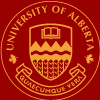|
The
village of Mesheikh marks the southern-most limit of the
extensive cemeteries in the Naga ed-Dêr region that
stretch about six kilometers downstream from Mesheikh to
Sheil Farag. George Reisner carried out intermittent excavations
in the district, first on behalf of the University of California
and, from 1905, for Harvard University and the Museum of
Fine Arts in Boston. Much of the material from these excavations
has never been described.
The
remains of 71 skeletons, which are curated at the Phoebe
A. Hearst Museum of Anthropology at the University of California,
Berkeley, were studied in 1996. Only one of these individuals,
a male probably greater than 50 years of age at the time
of death, was represented by post-cranial bones in addition
to the skull. The prevalence of fractures in this skeleton
is likely the reason why the post-cranial bones were collected.
A
detailed report on the human remains housed at Berkeley
is forthcoming. Publication of this report within a monograph
on Mesheikh has been delayed due to the untimely death of
the monograph's author, Dr. William Ward.
|



